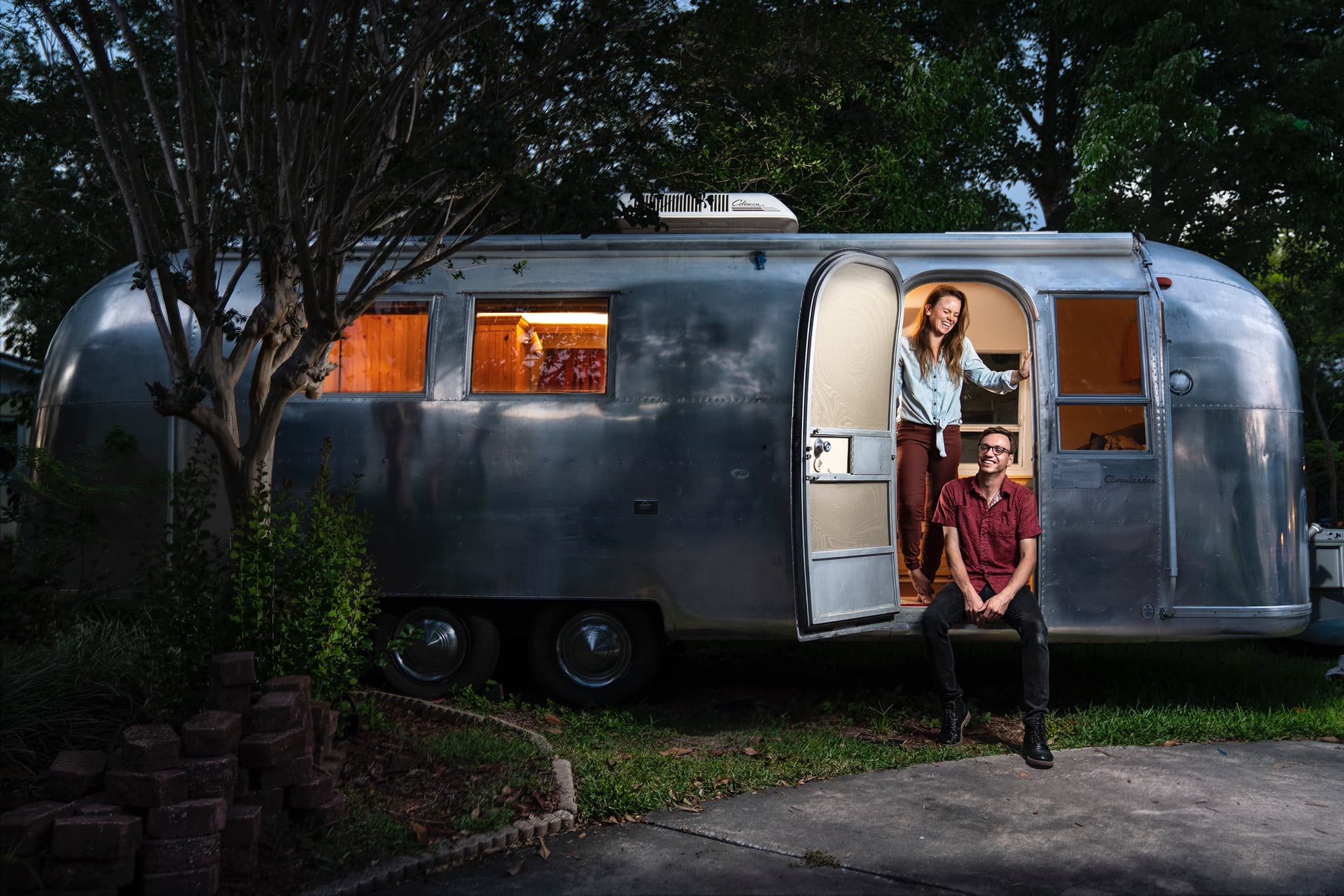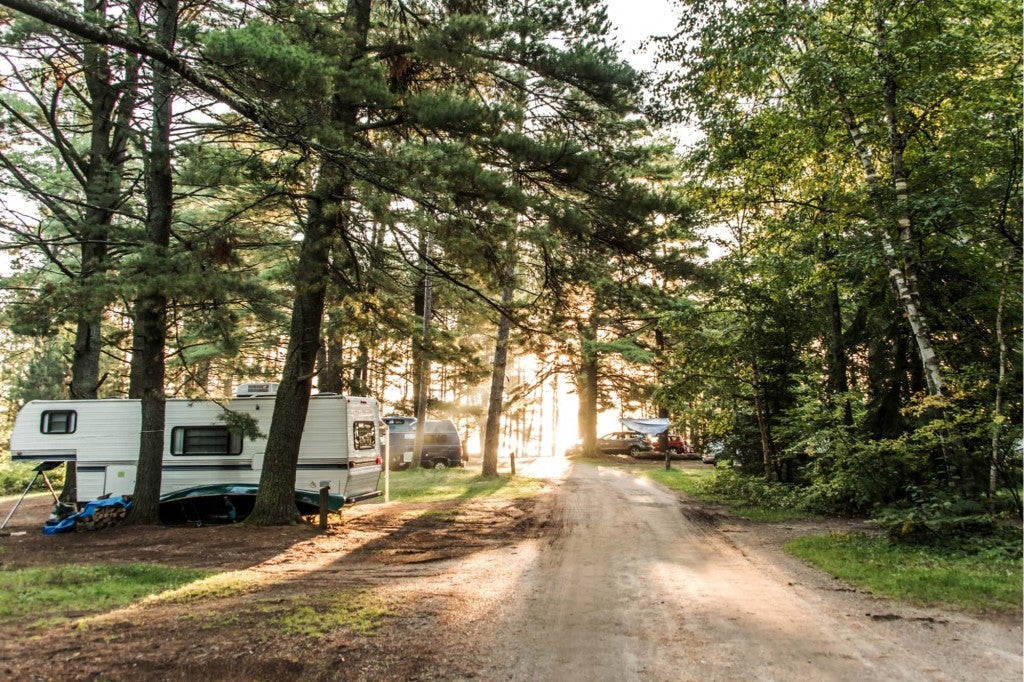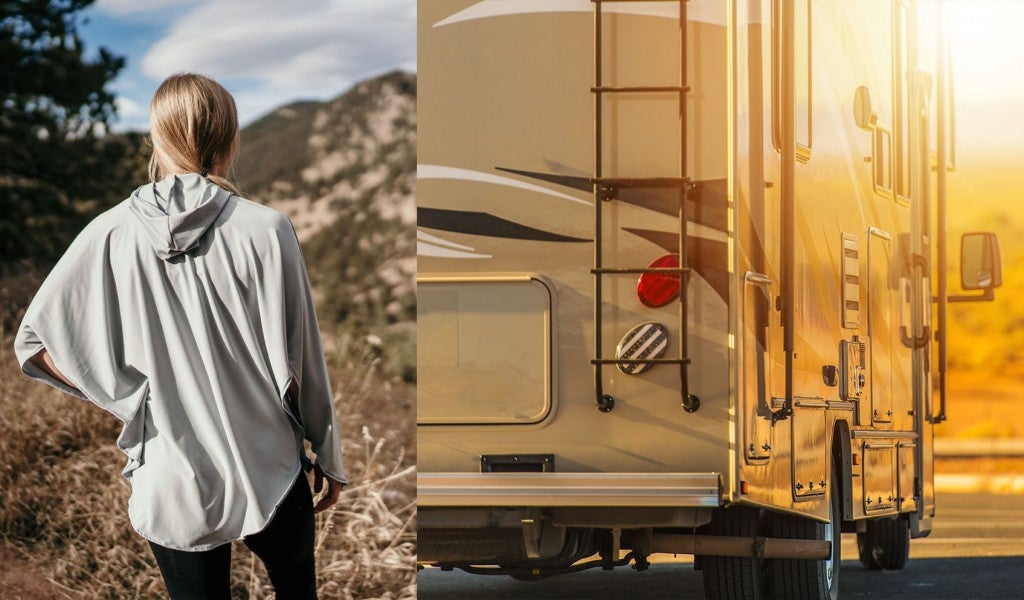For the author, living in an Airstream RV was the key to embracing her home country with a global mindset.
My passport is navy with a glossy golden eagle on the front and a looping script that reads: “The United States of America.” But in many ways, I know less about the place on the front of my passport than I do about the foreign countries stamped inside.
I spent the first decade of my adult life traveling as much and as often as I could. After growing up in the suburbs of Central Florida, I was eager to escape to new environments. So I took jobs based on how far from “home,” they could take me. When I wasn’t traveling for work I was working to travel, saving money for solo trips.
Now, as I inch toward 30, my wanderlust is no less cured. But, after a fast-track life living out of a suitcase, my desire to jet off to exotic destinations has waned. I’m choosing instead to wander the uncharted country outside my doorstep while pulling my home behind me.
Having never camped in an RV before in my entire life, I bought and moved into a 23-foot long Airstream travel trailer with the goal of slowly exploring a vast and mysterious country: my own.
I Started Living in an Airstream RV in My 30’s
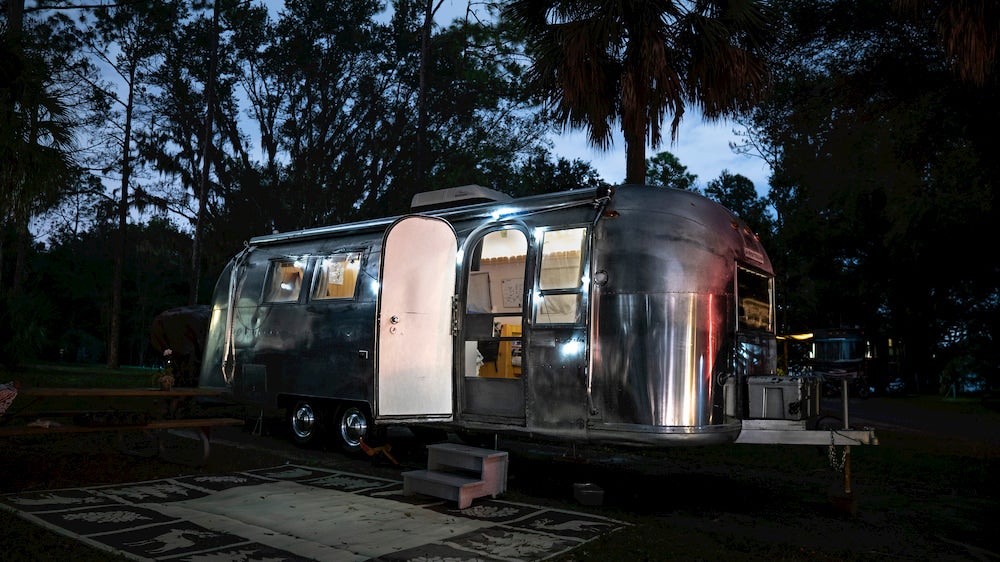
Image from Kelsey Glennon
In the aftermath of the Great Recession, many millennials struggled to find work, including me. I stumbled into the world of entertainment and worked as a performing artist for the first decade of my adult life. As a dancer, my work was never destined to last forever. So now I stare headlong into a career change.
Despite my unconventional first profession, I am not unlike my millennial peers, rounding the corner of my first decade in the workplace and wondering if there’s more out there than the hustle that keeps my nose to the grindstone. I want a healthy work-life balance, the freedom to work on my own timeline, and the ability to use my unique skills to work smarter, not harder.
Joining A Millennial Movement Towards More Remote Work
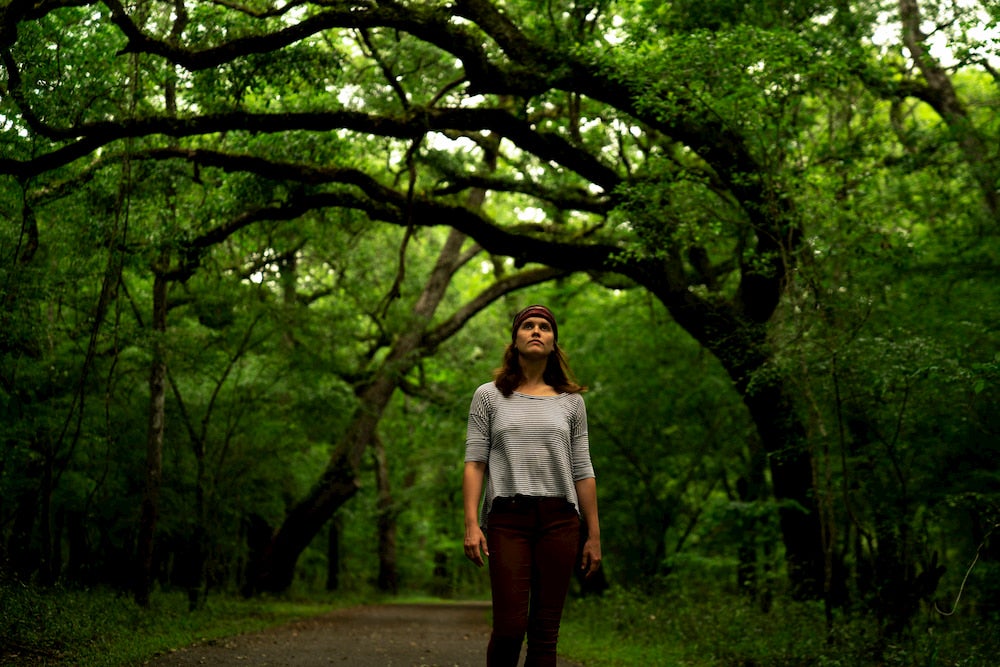
Image from Kelsey Glennon
Millennials are pushing the transformation of the workplace in this way, showing greater engagement and better output when working from home. Virtual work is one of the biggest drivers of workplace change, with 37% of young professionals having already dabbled in remote work.
The discontent with the status-quo of “workism,” coupled with the frugality I learned from the sting of the Great Recession, has lead me (and many of my peers) to choose a life on the road.
Airstream life (or any kind of RV Life or mobile life) can offer cheaper ways to live, with greater freedoms that align with priorities shared by much of my generation, such as:
- Enjoy and treasure the natural world.
- Embrace life away from the digital sphere.
- Create, rather than consume.
- Strike a work-life balance that doesn’t leave me overworked and wanting more.
This quarter-life introspection has brought me to where I am now—writing an essay from my 200-square-foot home and wondering Why, after a decade worth of international travel, have I chosen to live on wheels and roam the USA?
And also, why are more young people like me choosing this lifestyle once reserved for retirees?
Living in an RV (or in my case, an Airstream) may seem antiquated, but the longer I spend on the road the more I see that landscape change. As more young people push for remote work they choose mobile life, not in an attempt to skirt responsibility, but as a choice to live more responsibly—minimally, slowly, and with intention.
Prepare for your next adventure in your airstream by downloading maps. The Dyrt Pro lets you download maps and campgrounds without cell service. “My alternative to using pro would be to drive back out to cell service”.
Discovering America From The Driver’s Seat
At first glance, the choice to live on the road full-time looks like a classic, non-committal millennial move—neglecting notions of obligation for life without an anchor. But unlike the fast-paced traveling I did in my twenties, I’m eager to slow down in new places.
This journey is a mindful search for something richer—a place to call “home,” in my own country and an answer to my question: ‘How can my new occupation, whatever it may be, merge harmoniously with the internationally influenced life I love?’
What it means to be “American,” today is a contentious topic but I can’t stop thinking about it, especially now that I have the freedom to drive to new corners of this country and call new places “home,” temporarily. Even as I travel more here, I sometimes struggle to feel at home in America. I have a real admiration for foreign cultures, and they’re woven into the fabric of who I am:
I like taking long afternoons off to chat and cook, like the Italians.
I like to eat dinner late and get lost in conversation, like the Spaniards.
I can’t live without live music and dancing, like my Latin American neighbors.
I love to celebrate the natural world, like the Costa Ricans.
I enjoy life’s cozy pleasures, like the Danes.
And when I work I strive to do my very best, like the industrious Japanese.
Rolling around the U.S., in an ironic twist, is proving to be the answer to living the globally influenced lifestyle I love.
Full-time RV life, though a classic symbol of Americana, is really more of an international concept. It defies mainstream Western norms of consumption and overwork by forcing minimalism and a slower life pace.
It worships nature and encourages living harmoniously within it, a nod to the true Native American way of life. It forms unlikely friendships and increases understanding across cultures and generations with every new neighbor. Life on the road stimulates the very same mentality that made me fall in love with international exploration—it debunks the blueprint of my own ignorance.
Redefining Life in an Airstream
I currently sit writing in my tiny silver home with the Southern Appalachian mountains outside my window. I’m parked in the alpine town of Helen, Georgia. The quaint downtown village pubs and shops are modeled after Germanic farmhouses with dark timber construction, white walls, and thatched roofs.
Though the town is undoubtedly a tourist destination, the influence of other cultures is precisely why people flock here. Beer gardens gather people together, while the open-air patio fills up at the International Cafe overlooking the Chattahoochee River. Laughter and live music drift over from the nearby margarita bar, while hungry hikers fuel up at the diner down the street. The very same warm and inviting communities I’ve fallen in love with overseas are right here, braided within American culture. I look forward to exploring other towns and cities like Helen, places that celebrate America’s most remarkable feature and the very reason why I feel at home here— its diversity.
Though my time living and traveling in an Airstream is multicultural, the trip itself is unequivocally American—a self-prescribed experience, celebrating independence and the freedom to pursue happiness. For me, that happiness is found in exploring the international country I’m grateful to call home.
The Dyrt is the only camping app with all of the public and private campgrounds, RV parks, and free camping locations in the United States. Download now for iOS and Android.Popular Articles:
Articles on The Dyrt Magazine may contain links to affiliate websites. The Dyrt receives an affiliate commission for any purchases made by using such links at no additional cost to you the consumer.

